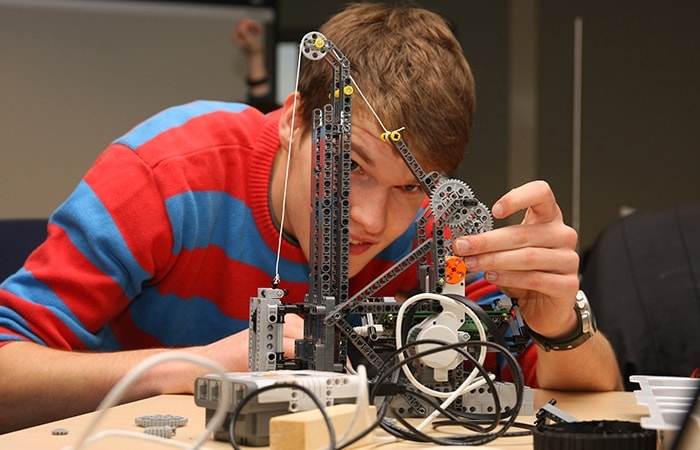Table of Contents
What does an Aerospace Engineer do?
Aerospace Engineer-Here is a specialization of engineering quite rare, but instead paying! You are passionate about flying devices of all kinds; aerospace engineering is for you!
In Quebec, only 2% of all engineers specialize in aerospace engineering. Although the profession is not very popular, the program at the University is nevertheless limited. There seem to be a lot of registrations, but few chosen ones. Only a little dozen students are admitted to the program each year.
So what does the job of an aerospace engineer consist of?
The tasks of the Aerospace Engineer

The aerospace engineer is the specialist in everything that flies: he works in designing, designing, testing, and developing aircraft and associated products. Its tasks include both the design of an airplane and the trajectories it will perform in flight.
Roughly speaking, this profession is that of enthusiasts of airplanes, helicopters, rockets, satellites, in short, flying devices of all kinds.
Salary
When it comes to salary, the aerospace engineer usually doesn’t have to worry. According to the Engineering Compensation Study, his average salary is $ 117,200, the second-highest for engineering professionals. In comparison, the average income of any engineer in Quebec is $ 101,726 per year.
As with other engineering specializations, the employment situation in aerospace is perfect. According to the Polytechnique, 94% of graduates find a job in the field.
Training
To suit an aerospace engineer, you must complete your bachelor’s degree in the field, in addition to being a member of the Order of Engineers of Quebec (OIQ).
In Quebec, only two universities offer bachelor’s degrees in aerospace engineering: Polytechnique and Concordia University. Laval University and McGill University also provide a few master’s places in this field.
However, registering for a bachelor’s degree in aerospace engineering is difficult, as the program is limited. The Polytechnique only admits 50 students per year; the last accepted R rating was 31.14 in 2018. As for Concordia, the minimum R rating is 31.
Engineers wishing to work in aviation can also complete their bachelor’s degree in mechanical engineering and specialize in aeronautics.
Employment Sectors
The qualifications of an aerospace engineer lead him to work in the flying machine industry. Thus, the leading employers are companies in the aviation sector such as Bombardier, Boeing, Delta, Safran, CAE, Pratt & Whitney, or Airbus.
Some positions also offer in other companies like NASA, Bell Helicopter helicopters, Matrox satellite manufacturer, or the Canadian Forces.
It is also possible for an aerospace engineer to work for a consulting engineering firm or the public service, mainly at the Ministry of Transport.
What opportunities does the training offer?
Major manufacturers in the sector can hire aerospace engineers, such as EADS or Ariane Espace. He may also obtain opportunities in the Army or research organizations, such as the National Office for Aerospace Studies and Research, the Center for Strategic Aerospace Studies, or the National Center for Space Studies in Toulouse. Required to work in a multidisciplinary and often international environment, the aerospace engineer must also equip with skills in languages (basic English, Russian recommended), communication, and management. He must be ready to work abroad (Europe and the United States in particular).
What Is Aerospace Engineering?
Aerospace engineering trains engineers ready to meet the needs of the transport and innovation community of the 21st century. The planned development and testing phases will develop complex systems and engineering products (aircraft, machines) for aviation and space.
Exciting careers offer in the field, sometimes even before graduation.
In addition to working for large aircraft manufacturers (Bombardier, Pratt & Whitney, Bell, CAE), equipment manufacturers, subcontractors, civil or military organizations, consulting engineering firms, and in academia in the greater Montreal region (3rd largest city in the world for this sector), our graduates make careers around the world!
By choosing the Conceive, Design, Implement, Operate (CDIO) approach developed by the Massachusetts Institute of Technology, Polytechnique’s Bachelor of Aerospace Engineering program offers innovative training geared towards balancing advanced learning and know-how (practice) interpersonal skills.
